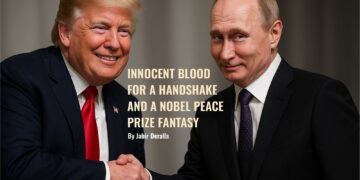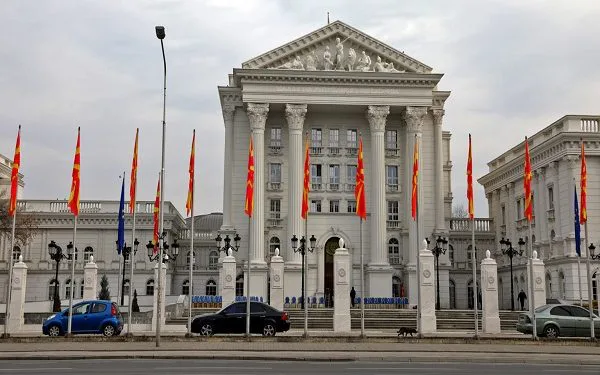Very soon the Government will announce concrete anti-crisis measures aimed at aiding the most vulnerable groups of citizens, as it did at the beginning of the crisis and during the Covid pandemic, said Prime Minister Dimitar Kovachevski on Monday, transmits MIA.“I have said on several occasions that the age of abundance has ended when it comes to electricity, but this is valid for other resources as well. There is a war in Europe. There is a war in Ukraine. Practically on a daily basis things are getting worse over there, which is why we will continue aiding the most vulnerable groups of citizens in our country,” said Kovachevski.
He emphasized that restricting trade margins is working, but that the inputs – the fuels and raw resources, which the producers of basic food products receive, are driving the increase in prices.
“We are all aware of the rising food prices, especially concerning basic food products. The Government initially froze the prices, however, since we are an open economy which trades with foreign partners, freezing prices for a long period is impossible, because there won’t be enough products, so we moved to restrict the trade margins,” said Kovachevski.
The PM said that inflation in the EU is at a historic high, and the central banks have already intervened by increasing interest rates in an attempt to rein it in, an example which our National Bank has followed on several occasions as well.
Kovachevski also reiterated that the pensions were increased by 6 percent in September, which together with the previous increase amounts to a 10 percent increase in 2022, and with the upcoming increase in March, will add up to a total increase of 16 percent. At the same time the PM mentioned that on the basis of the agreement reached with the Union, wages in education have increased by 15 percent.
He underscored that the Government’s Economic Council regularly holds meetings attended by all ministers from the economic sectors, including the Minister of Labour and Social Policy, as well as the fact that the Council will hold an expanded meeting Wednesday and that the lists of citizens set to receive aid are already being drafted.
The PM said that VMRO-DPMNE leader Hristijan Mickoski and two economists from the party will be invited to the expanded Economic Council meeting Wednesday.
“They were invited to the previous Economic Council as well, however they did not attend. We have different views, but I respect them,” added Kovachevski.
Regarding Mickoski’s calls for a meeting in order to “present to the PM a concept aimed at softening the blows of the economic crisis,” Kovachevski emphasized that this topic cannot be discussed at a meeting involving just the two of them.
“You are well aware that fuels and electricity are acquired through ESM, and all those who have offers can deliver them to the ESM archive. The VMRO-DPMNE leader said he has indicative offers for fuels that were valid for seven days. Wednesday is the seventh day, will they be delivered by Wednesday, do such offers exist, we don’t know. In the Government there is no such archive where he can submit any offers. The place for proposing measures, concepts, etc. is the Economic Council meeting which will be attended by the heads of all economic chambers, representatives of the academic community, economists from the Macedonian Academy of Sciences and Arts, representatives of the largest companies, representatives of the Government from all economic sectors and of course in this case, the VMRO-DPMNE leader, who also has a background in the field of energy,” said Kovachevski.
The PM stated that the electricity subsidies will continue, reiterating that 80 percent of electricity costs are being subsidized.
“What the Government is trying right now, together with the economic chambers, is to secure affordable electricity for businesses,” said Kovachevski.
Kovachevski stated that the Government is currently holding talks with neighboring countries on acquiring fuels and electricity. Talks are being held with Serbia for the delivery of gas to the country, which would be turned into electricity, and half of it would be exported back to Serbia, while the other half would remain in the country.
“The Serbian officials are still examining the possibility of doing this. If they are able to deliver the gas to North Macedonia, then that idea will be able to be realized,” said Kovachevski.
He reminded of the talks held with Bulgaria on a bilateral agreement for the provision of electricity at a price more affordable than the market price. However, regardless of Bulgaria’s readiness to do it, Sofia will have to respect the EU’s rules and regulations, which oblige it to sell all excess electricity on the market.
“When it comes to Turkey, the Economy Minister met with the ‘BOTAŞ’ company, which is a state-owned company, and the talks are still ongoing, we will have to see what the offer is and how much energy they can deliver. At the same time there are discussions about freeing up the cross-border transmission capacities in the case that electricity is secured at prices affordable for our businesses,” said Kovachevski.
He emphasized that these are complex operations, and that they are working on them day and night in order to provide electricity and fuels at prices which would be affordable and optimal for the country’s business sector.
“We will work constantly, every day, with the aim of finding a solution,” said Kovachevski, adding that the Government thus far, has not discussed any of these issues with “Gazprom”.
















